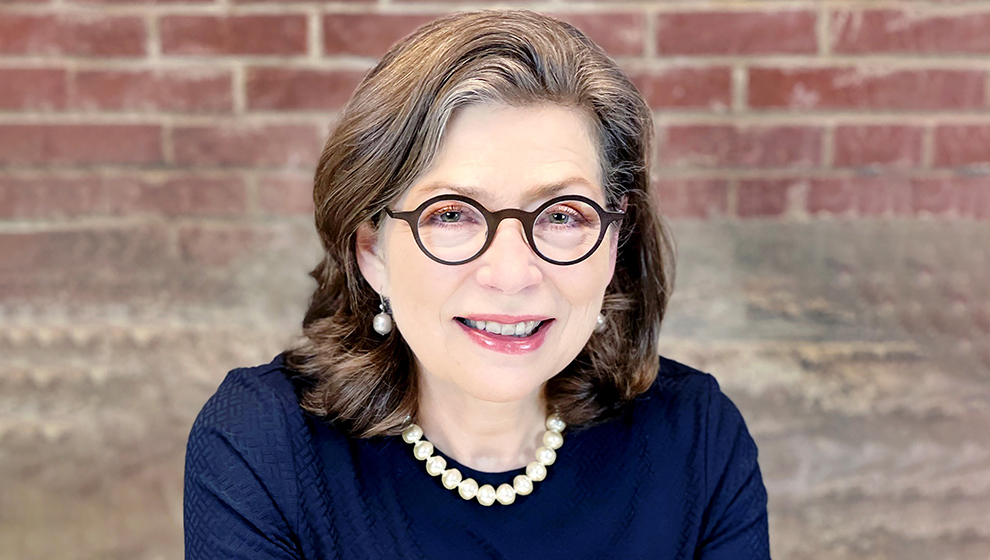Deborah Hylton, a highly experienced ADR specialist, presents an alternative option: dispute prevention. In this feature, she explains the premise of dispute prevention, what it aims to achieve and how a lawyer can adopt it as a new tool for assisting their clients.
We all recognise mediation as an established tool for dispute resolution. There Is more talk now about dispute prevention. Can you give us an overview of this?
Many mediators and advocates recognise that by the time mediation occurs — with a lawsuit underway or as a last-ditch effort before filing — too often the lines have been drawn and parties are entrenched. Prevention recognises conflict (which is inevitable) at an earlier stage, before the parties are pitted against each other. Prevention is an early, conscious choice by parties (let’s say, parties to a long-term supply agreement or co-owners of a business) to identify and productively engage with disagreements as and when they arise. Each party is often more able to see the other’s point of view at this stage.
What are the fundamental principles for dispute prevention?
- The parties’ deep commitment to early identification of and engagement with conflict. The contract can include a non-binding commitment to use reasonable efforts to avoid disputes. The provision is non-binding to protect the parties’ autonomy on finding solutions.
- A relationship owner within each party committed to getting the value of the desired arrangement by avoiding disputes. The attitude of each principal and designated representative is key.
- A process for identifying and surfacing conflicts as and when they arise, between designated individuals within each party, with a clear framework for discussing the issue.
- The opportunity for a third-party neutral to facilitate the resolution of conflicts — a ‘relationship facilitator’. The relationship facilitator can be selected at the time of the agreement, contemplated in the contract to be selected later based on enumerated qualifications, or used outside a contract if needed. A big advantage to selecting at the time of the contract is eliminating one more issue on which the parties take differing views.
It is also highly valuable to have an infrastructure within an organisation that recognises and rewards efforts of prevention.
Many contracts have ‘escalation clauses’ in their dispute resolution provisions, sending disputes up a chain of more senior executives to resolve disputes. What is different about prevention?
Yes, some of the contractual provisions are similar. But those provisions are now often routine form clauses. An intention of the parties to (really) work to avoid disputes is key, as is laying out a framework for earlier identification and facilitated discussion.
How do the parties bring the relationship facilitator up to speed on the nuances of how the working relationship evolves through performance of the contract over time?
A ‘standing’ relationship facilitator can be designated in the contract to participate in regular, periodic reviews for the contract. The relationship facilitator has two jobs in regular periodic reviews: observe and track the dynamics of the relationship and specific issues and identify topics of conflict and surface for party discussion. A party may be reluctant to highlight potential conflict, but the facilitator’s job is to make sure that folks do not turn their heads for too long.
Many mediators and advocates recognise that by the time mediation occurs — with a lawsuit underway or as a last-ditch effort before filing — too often the lines have been drawn and parties are entrenched.
What is the role of a relationship facilitator when discussing disagreements?
The role is similar to mediation: to find an agreement. In prevention, the process is more of solving a mutual problem. The facilitator may help set up a process, e.g. leading the parties to brainstorm and surface all shared objectives and all possible solutions, then methodically discussing each solution. The facilitator may offer solutions of their own. As in mediation, the facilitator can help ensure each party hears what the other is communicating.
It is important to emphasise that the relationship facilitator is not a decision-maker. One colleague interviewed several general counsels about using dispute prevention, and a common response was “I am not turning over our issues to a third party.” That is right — the parties make the decisions.
What skills are needed for dispute prevention?
Prevention really is about problem-solving and finding solutions. Creativity, openness, excellent communication — the skills of a good mediator — are important in dispute prevention. Familiarity with the subject of the dispute is often essential to good problem-solving.
To ask a cynical question, why would any firm or lawyer with a strong reputation in litigation ever encourage dispute prevention?
Some of the biggest proponents of prevention I know are big law litigation partners who see first-hand the waste of time, money and energy in litigation rather than in problem-solving. I have written up some of our discussions in an article on my website. These advocates recognise that the best interest of the client is often to find a different approach to work on solutions rather than just wage battle, while staying ready for battle when needed.
One of my former law partners — an outstanding litigator — did just that. A CEO had called that litigator indicating that he had gotten crosswise with his investors and his board. That litigator’s advice was: “Do not hire somebody like me at this point; call Deborah or someone with her skills” to explore solutions. That CEO never called, and did not retain the litigator, but I hope he explored solutions.
That CEO example, and frankly some of the dispute prevention work you describe, sound like a first cousin of ‘early mediation’ prior to litigation being filed. What can be done to make early mediation work?
Prevention can occur one step earlier than early mediation, before the claims are well-outlined in either party’s head. As for success in both, the lack of information may be a challenge. Fear of the unknown is a reasonable caution in any significant decision but can overshadow solutions. Whether in prevention or early mediation, counsel can help define the issues and encourage the parties to share information to optimize the chances of reaching an agreement.
Creativity, openness, excellent communication — the skills of a good mediator — are important in dispute prevention.
How can lawyers incorporate dispute prevention into their practice?
Many lawyers in various fields have dispute prevention as part of their ongoing practices, whether they call it that or not. It is fundamentally an approach to design and use processes for identifying and engaging early with conflicts to find solutions rather than default to litigation or arbitration.
Understanding the tools and opportunities for dispute prevention enables lawyers who are looking for better solutions, or some new methods, to add dispute prevention to their own ‘toolkit’ in serving as a trusted advisor.
What kinds of training and resources are there for dispute prevention?
A key innovator in the field is the International Institute for Conflict Prevention and Resolution; their website has a wealth of resources. The ABA and many state bar associations are seeing dispute prevention as a natural extension of the field of alternative dispute prevention and are developing training and resources.
Is dispute prevention suitable for all arrangements and contracts, or just for a select few?
Right-sized dispute prevention can be beneficial in most or all arrangements. Full-blown contract preventions with standing relationship facilitators participating in regular briefings is likely cost-effective only for contracts in which the dollars or successful outcome are particularly meaningful. Joint ventures, long-term supply, licensing, or make/break-the-company arrangements are obvious candidates for where the fuller provisions are useful. Effective counsel can help tailor dispute prevention provisions to the scale and needs of each situation.
[ymal]
In what ways has your experience as a former corporate lawyer given you a better understanding of the fundamentals of mediation?
Negotiating day-in, day-out gives me a real appreciation of how deals are made (or not). A contract is a collection of many smaller pieces that fit together as mutual overlap. My background also gives me a bird’s eye view as to how expectations are not met in performance and disputes arise. My background is useful in being able to recognise patterns and in having some insights into which threads to pull to untangle the knot.
Deborah Hylton, Founder
312 Blackwell St, Durham, NC 27701, United States
201 West Main Street, Suite 215, Durham NC 27701, United States
Tel: +1 919-946-6670
E: deborah.hylton@hyltonadr.com
Deborah Hylton is a Fellow of the Chartered Institute of Arbitrators with an active practice in conflict engagement, including dispute prevention, mediation and arbitration. Prior to establishing her ADR practice, she spent 10 years in business-only roles including CEO, Board Chair and Restructuring Officer. She has been a recognised corporate and securities lawyer, with over 22 years of experience at a Top 100 US law firm. She was recognised by Best Lawyers in America for corporate law for more than 10 years and was rated AV Preeminent by Martindale-Hubbell. She also currently serves as director of a privately-owned health care clinical products manufacturer and design company in addition to serving on the boards of two other health-related companies.





















